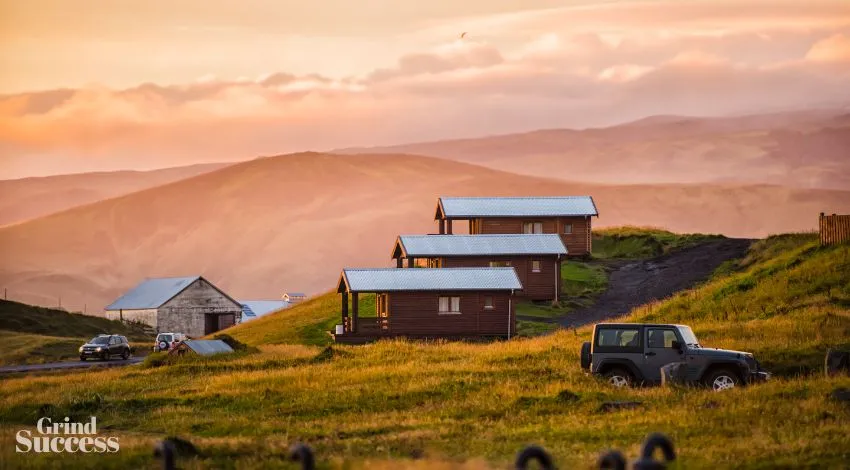Surviving and Thriving: Tips for Living in a Remote Area

Living in a remote area can be both challenging and rewarding. While it offers the opportunity to live in solitude and connect with nature, it also requires a certain level of self-sufficiency and preparedness.
Surviving and thriving in a remote area requires a different set of skills and mindset than living in a more urban environment. Here are some tips and advice on how to live comfortably and safely in a remote area.
Invest in wind power
Living in a remote area often means being off the grid, which can be a challenge when it comes to accessing energy. However, investing in wind power can be an excellent solution.
Wind turbines are a sustainable and renewable energy source that can provide power to homes and communities in remote areas.
By harnessing the power of the wind, you can reduce your reliance on fossil fuels and minimize your carbon footprint. If you’re interested in investing in wind power, consider reaching out to a wind turbine company.
They can help you assess your energy needs and design a system that meets your specific requirements.
Additionally, many companies offer maintenance services to ensure your wind turbine operates at peak efficiency for years to come.
Overall, investing in wind power is a smart choice for those living in remote areas who want to embrace sustainable and self-sufficient living.
Stock up on supplies
Living in a remote area can be an amazing experience, but it does come with some unique challenges, such as limited access to stores and other essential services. To be prepared for any situation, it’s important to stock up on supplies.
Make a list of the essentials, such as non-perishable foods, bottled water, first aid supplies, and extra toiletries.
Consider investing in a generator, fuel, and batteries to ensure you have access to power when you need it. It’s also a good idea to have a backup source of heat, such as a wood-burning stove, in case of power outages. By stocking up on supplies, you can ensure you have what you need to survive and thrive in your remote location.
Learn survival skills
Living in a remote area means being self-sufficient, and it’s important to know how to survive in the wilderness. In case of emergencies, having survival skills can make all the difference.
Consider taking courses in first aid, fire-building, and other essential survival skills to prepare for any situation.
You can also practice wilderness survival skills, such as how to find and purify water, navigate using a map and compass, and build a shelter.
Additionally, it’s a good idea to familiarize yourself with the local flora and fauna, as well as the risks and dangers of the area, such as extreme weather conditions or wildlife encounters.
By learning and practicing survival skills, you can increase your confidence and feel more prepared for life in a remote area.
Stay connected
Living in a remote area can be an incredible experience, but it can also be isolating. However, modern communication technologies make it easier than ever to stay connected with the outside world.
Investing in satellite internet, a two-way radio, or a cell phone can help you stay connected with friends, family, and emergency services.
With satellite internet, you can access high-speed internet from anywhere in the world, allowing you to stay connected to work, school, and entertainment. A two-way radio can be used to communicate with other people in the area, while a cell phone can be used to call emergency services in case of an accident or injury.
By staying connected, you can feel more secure and comfortable in your remote location, while still enjoying the peace and quiet of the wilderness.
Explore the outdoors
Remote areas often offer access to beautiful landscapes, hiking trails, and other outdoor recreation opportunities. Take advantage of the natural surroundings by exploring the local wilderness areas, lakes, rivers, and other scenic spots.
Hiking, fishing, and camping are great ways to stay active and enjoy the outdoors. You can also join local groups or clubs to participate in outdoor activities with like-minded individuals. By exploring the outdoors, you can stay active, healthy, and connected to the natural beauty of your remote location.
Build a sense of community
Building a sense of community can be incredibly rewarding and help you feel more connected to your surroundings. Attend local events, join clubs or organizations, and get to know your neighbors to create a support network and sense of belonging.
Volunteering is also a great way to meet new people and give back to your community. You can volunteer at a local school, church, or community center, or participate in community service projects.
By building a sense of community, you can create meaningful connections with others, share experiences, and support each other in times of need.






